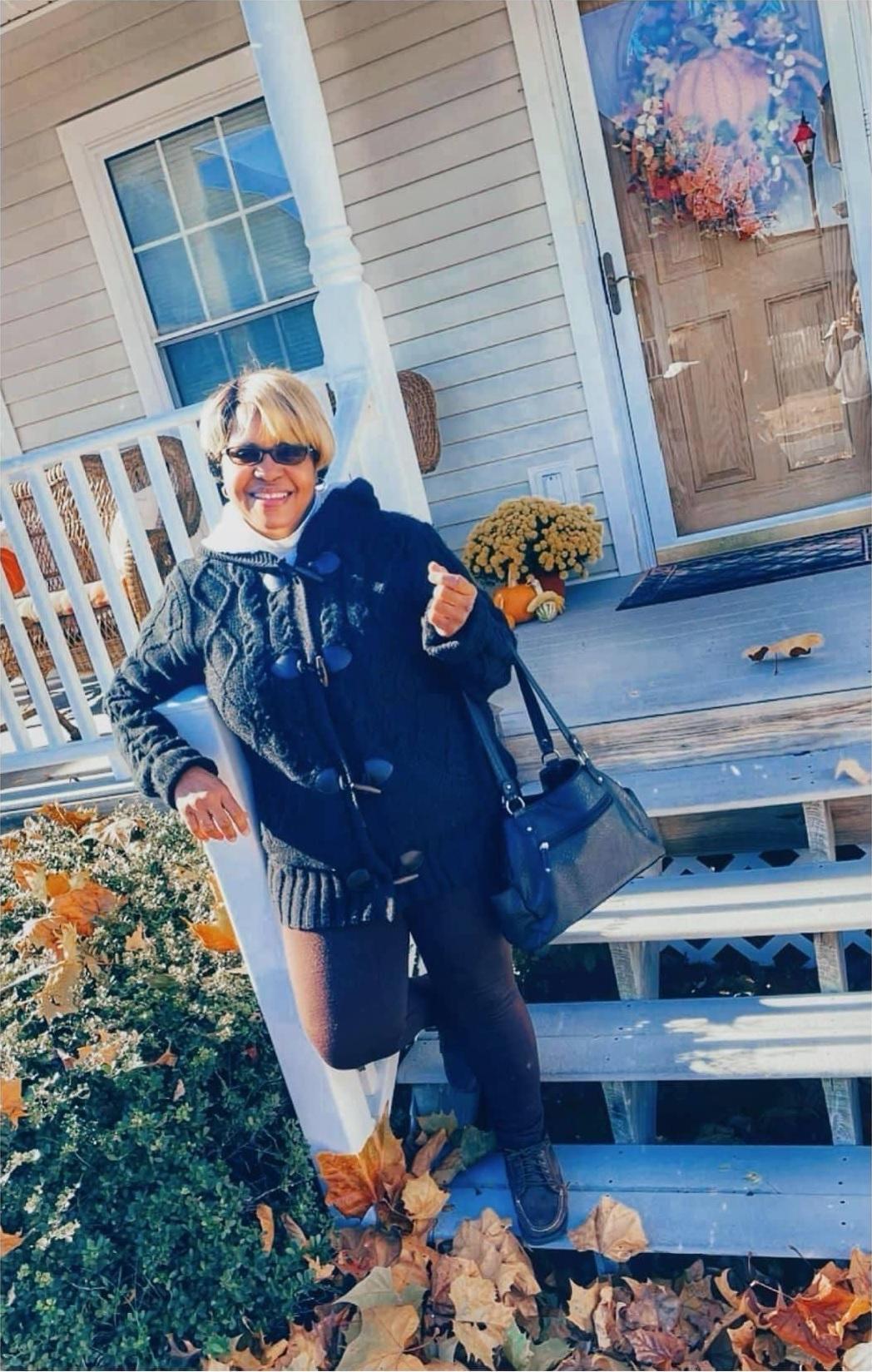Parenting is not easy, but when you add an element like foster parenting into the mix, the challenges can sometimes become daunting. Talbot County Department of Social Services (TCDSS) has developed a creative solution to help foster parents through a support group, using a therapist agency, Families Connected from Baltimore County. Melissa Lenet, one of the founders of Families Connected is the facilitator for the foster parent support group on the Mid-Shore.

Melissa Lenet, one of the founders of Families Connected, and the facilitator for the foster parent support group on the Mid-Shore.
Sharon Caldwell of Easton, who has been a foster parent in Talbot County for 29 years, has participated with Lenet in the monthly evening virtual Support Group that started three years ago for foster and adoptive families. She has one biological daughter and two adopted daughters, ages 18 and 20.
“In the support group, we can learn from each other. Melissa is there to walk us through any concerns we have. She has been especially helpful as I guide my two daughters into adulthood, helping them transition to independence. We are very fortunate to have her as a resource,” Caldwell states.
Lenet, who has a therapeutic foster care background, states that there are themes that are unique to the foster parent population – specifically around trauma-informed parenting. Most children in foster care have attachment disorders and they have all experienced trauma after being removed from their families. Secondary trauma is happening to the foster parent and the foster family’s biological children because of the primary trauma experienced by the child in foster care.
“You really can’t do foster care without addressing trauma. Whenever a child is removed from a family, the whole family system is disrupted. This secondary trauma is a huge theme as we provide support to foster families,” Lenet explains.
“With the support group, people come and update the group on what they are dealing with and ask questions. I provide some structure when I see that it would be helpful and help redirect conversations when needed.”

Sharon Caldwell of Easton who has been a foster parent in Talbot County for 29 years.
Because the foster care support group is virtual, the group can reach more people. Foster parents don’t need to get childcare to attend and participate from home.
“Some of the common things we help parents with are how to talk to their foster children about their stories. Another big issue is helping parents know how to explain about their families when they are out in public and certain children may be of another race or culture,” Lenet explains.
“We also work with foster parents on how to work with birth parents, how to keep boundaries, and how to deal with the developmental stages of their foster/adoptive children, as well as talking a lot about grief and loss.”
“A lot of my work is trying to strengthen those connections that are already there between foster parents and their foster children. I refer to the support this group provides as placement disruption prevention. Because it’s hard enough to get the foster parents and retain them, we don’t want to disrupt the lives of the children again through re-placement,” she adds.
Paris Quillet, Special Project Coordinator for TCDSS, finds the support group to be a real asset to the Mid-Shore foster parent community. She states, “This resource has been transformational for our parents. It is a safe place for them to come and feel supported. Parents in the support group also provide support to one another. They share what they’re going through. When a new baby comes in, parents in the group will make a meal for the family. It’s been a great asset to foster and adoptive parents.”
The support group is unique in that it is available to foster and adoptive families from Dorchester County to Cecil County.
“Talbot County has been an incredible agency to work with. They’ve been really attentive and communicative and very professional. I also give TCDSS huge props for providing this service for families. It is such an act of kindness and generosity to pay for this and to provide subsidies for families who need individual therapy in addition to the support group. For these families, it’s going to be lifelong for them and it can really make a difference,” Lenet adds.
In addition to providing private therapy to individual families, Families Connected provides staff training for Departments of Social Services across the state of Maryland.
“We are giving the parents permission not to have all of the answers all of the time. We also give them permission to outsource the answers and help to validate their success and hard work and provide encouragement through these support groups,” adds Lenet.
“I see the group as an anchor for resources for each other. It’s a place they know that they can come to even if they just need to get a resource.”
Talbot County continues to need more foster and adoptive parents to help meet the needs of children of all ages, most recently including infants and school-aged children. The agency also gets requests from time to time for sibling groups and older teens who are soon aging out of foster care and need guidance in transitioning into adulthood. For further information on becoming a foster or adoptive parent, call the Talbot County Department of Social Services at 410-820-7371 or visit midshoreresourceparents.com.



Write a Letter to the Editor on this Article
We encourage readers to offer their point of view on this article by submitting the following form. Editing is sometimes necessary and is done at the discretion of the editorial staff.